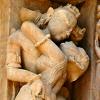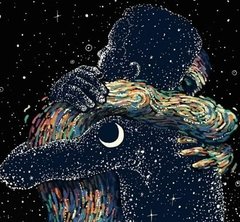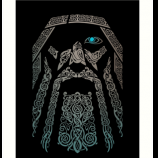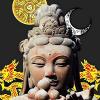Search the Community
Showing results for 'Dream'.
Found 7,591 results
-
I am talking about the real dream, not visualization. .. you cant take knowledge into a dream, in dream time and space is insignificant. its hard to remember a dream,.. but something is happening there in the Holistic swamp. Any leads from the Old Masters???
-
I checked that one out and read the reviews. Got it on order. I looks like a very useful book and not just for the dream yoga. Thanks for the recommendation ST.
-
I love dream work. Lucid dreaming is one of my keen interests. I found this book helpful for dream work: http://www.amazon.com/The-Tibetan-Yogas-Dream-Sleep/dp/1559391014 Recently I've been intending to run my same daily qi gong forms in the dream state, but to little success. I've become lucid several times as I realize I'm running energy through my dream body, or I'm already engaged in the MCO, (usually in an altered body). But I have yet to become lucid in a dream and then initiate and run a form. Couple nights ago as I lay in bed I decided to start running a qi gong form in my mind in extreme detail as I shift to sleep. It's a great way to drift off. The last thing I'm processing actively and with intention as I fall asleep, is the next move in the form. This should lead to some blissful dreams at a minimum. Intuition says increasing likelihood of more lucid dreams being triggered involving energy work or any like symbols. No matter what, it's a great way to fall asleep.
-
Namdrol said many times that the view is only dependent on direct introduction. He must be talking about the practice side i.e. dark retreat, dream yoga, phowa etc.
- 29 replies
-
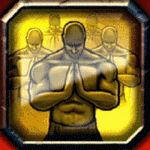
So I had huge energy sickness all night
SonOfTheGods replied to SonOfTheGods's topic in General Discussion
Early this morning- I got stuck in a cataleptic state OBE - originally from a lucid dream about hemi-synch instruction while stuck in my bedroom, a LOUD Female voice - was not robotic- spoke to me - External I understood it as Yin personified -
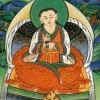
BKA's guide on how to pickup women.... and lizard people
RongzomFan replied to BaguaKicksAss's topic in General Discussion
You are right. But I'm responding to the PUA dream of ugly guys dating hot girls. -
What happens when we sleep and dream, I wonder. Some how it start all over again. The peace and tranquillity I took with me to bed whirled away. As when I train tai chi chuan throughout the day, I am at the peak (of peace) in the afternoon, feeling the pressure/ present of dao, every thing is nice, chi flow and so on. Night comes with dreams and it starts all over again. Why? Any ideas? How to cultivate while dreaming.
-
It seems to me as if one is in the dream as well as the real world. How deep does the rabbit hole go? What I mean by 'real world' is consensus reality.
-

So how do you guys do stuff? Idiot's guide in plain english?
RongzomFan replied to BaguaKicksAss's topic in Buddhist Discussion
I do my practice in the lucid dream state. Unfortunately I can't get the Wake Initiated Lucid Dream going, which is the proper night practice. -
Thanks ChiForce. If you say that you you feel your chi active all over your body during the day and it gets stronger at night, then that might make it hard for you to feel much difference overall, energetically wise. I don't see any obvious connection with the dream images you described. Although my main intention was to send postive energy to your entire body, I did focus a bit more in the area of your lower legs and feet, as I usually start focusing in that area and work my way up. Based on your response I think I will have to put this one as a negative result. Thanks a lot for giving this a try!
- 21 replies
-
- experiment
- remote healing
-
(and 1 more)
Tagged with:
-
If anything, I think the changes would manifest in my dream. I am generally not that suspectable to mood changes. If I experience any unusual dream situations (encountering interesting beings and figures and etc), I will report back here.
- 21 replies
-
- experiment
- remote healing
-
(and 1 more)
Tagged with:
-

bad energy , negative attacks, what to do ?
ChiForce replied to suninmyeyes's topic in General Discussion
I have several of these experiences. First, you are being attacked because you yourself have certain psychological, spiritual, and mental vulnerabilities. This could be certain issues you are refusing to deal with and etc. Your weakness manifested in your dreams or meditations. Another forms of attacks are from randomness entities. I just spent an hour meditating and I was in another room in my apartment. In my meditation, I saw this angry looking woman (on the heavy side) with an angry face and holding some sorts of weapon in her hand. It appeared out of nowhere in my vision. I wasn't alarm but I chuckled a bit realizing what I saw during my meditation. I was like "what is this?" I have my shares of dealing with vampires in my dreams. Those are interesting. My recent dream involved a couple. In this dream, I was lying down and this little woman was making some obnoxious demands. They were so out of place and not in the context of the dream setting. I got so annoyed that I stood up and transformed myself into a giant. Here, she became a little 4 year old woman, no taller than 3ft, bitching about something. Her male companion, next to her, began to apologize for her. -
* This is the final extract that I copied out of William Dalrymple's "Nine Lives". Something in me fell in love with the dream of India many years ago, and this attraction still carries on in these cameo pictures of India's ancient, vibrant, and unbroken spiritual life as it exists today. India has many of what must be the oldest unbroken religious/spiritual/philosophic traditions in the world. They still continue to this day,... though like everything else in this 21st century, some things have changed and some have stayed the same : * * William Dalrymple wrote: THE SONG OF THE BLIND MINSTREL On the feast of Makar Sakranti, the new moon night on which the sun passes through the winter solstice, from the Tropic of Cancer to the Tropic of Capricorn, a great gathering takes places on the Banks of the Ajoy River in West Bengal. Around the middle of January, several thousand saffron-clad wandering minstrels or Bauls - the word means simply 'mad' or ‘possessed' in Bengali - begin to gather at Kenduli, in the flat floodplains of Tagore's old home of Shantiniketan. As they have done on this site for at least 5oo years, the Bauls wander the huge campsite, greeting old friends, smoking ganja and exchanging gossip. Then, as the night draws in, they gather around their fires, and begin the singing and dancing that will carry on until dawn. You approach the festival through green wetlands, past bullocks ploughing the rich mud of the rice paddy. Reed-thatched or tin-topped Bengali cottages are surrounded by clumps of young green bamboo and groves of giant banyans, through which evening clouds of parakeets whir and screech. As you near the Baul monastery of Tamalatala, which acts as the focus of the festival, the stream of pilgrims slowly thickens along the roadsides. Bengali villagers herding their goats and ducks along the high embankments give way to lines of lean, dark, wiry men with matted hair and straggling beards. Some travel in groups of two or three, others travel alone, carrying hand drums or the Bauls' simple single-stringed instrument, the ektara. Throughout their 500-year history, the Bauls of Bengal have refused to conform to the conventions of caste-conscious Bengali society. Subversive and seductive, wild and abandoned, they have preserved a series of esoteric spiritual teachings on breathing techniques sex, asceticism, philosophy and mystical devotion. They have also amassed a treasury of beautifully melancholic and often enigmatic teaching songs which help map out their path to inner vision. For the Bauls believe that God is found not in a stone or bronze idol, or in the heavens, or even in the afterlife, but in the present moment, in the body of the man or woman who seeks the truth; all that is required is that you give up your possessions, take up the life of the road, find a guru find a guru and adhere to the path of love. Each man is alone, they believe, and must find his own way. Drawing elements from Sufism, Tantra, Shakta, Sahajiya, Vaishnavism and Buddhism, they revere deities such as Krishna or Kali, and visit temples, mosques and wayside shrines.- but only as helpful symbols and signposts along a road to Enlightenment, never as an end in themselves. Their goal is to discover the divine inner knowledge: the 'Unknown Bird', 'The Golden Man' or the 'Man of the Heart, - Moner Manush - an ideal that they believe lives within the body of every man, but may take a lifetime to discover. As such they reject the authority of the Brahmins and the usefulness of religious rituals, while some - though not all - Bauls come close to a form of atheism, denying the existence of any transcendental deity, and seeking instead ultimate truth in this present physical world, in every human body and every human heart. Man is the final measure for the Bauls. In pursuit of this path, the Bauls defy distinctions of caste and religion. Bauls can be from any background, and they straddle the frontiers of Hinduism and Islam. The music of ‘God’s Troubadours’ reflects their impulsive restlessness and their love of the open road. Travelling from village to village, owning nothing but a multicoloured patchwork robe known as an alkhalla, they sit in tea shops and under roadside banyan trees, in the compartments of trains and at village bus stops, busking their ballads of love and mysticism, divine madness and universal brotherhood, and the goal of Mahasukha, the great bliss of the void, to gatherings of ordinary Bengali farmers and villagers. They break the rhythm of rural life, inviting intimacies and wooing and consoling their audience with poetry and song, rather than hectoring them with sermons or speeches. They sing of desire and devotion, ecstasy and madness; of life as a river and the body as a boat. They sing of Radha's mad love for the elusive Krishna, of the individual as the crazed Lover, and the Divine as the unattainable Beloved. They remind their listeners of the transitory nature of this life, and encourage them to renounce the divisions and hatreds of the world, so provoking them into facing themselves. Inner knowledge, they teach, is acquired not through power over others, but over the Self. Once a year, however, the Bauls leave their wanderings and converge on Kenduli for their biggest annual festival. It's the largest gathering of singers and Tantrics in South Asia. To get there I flew to Calcutta and took a train north to Shantiniketan, determined to see this gathering for myself. But first I had to find Manisha Ma's friend, Kanai Das Baul. Manisha had told me something of Kanai's story when I was with her in the Tarapith cremation ground. When he was six months old, Kanai caught smallpox and went blind. His parents - day labourers - despaired as to how their son would make a living. Then one day, when Kanai was ten, a passing Baul guru heard the boy singing as he took a bath amid the water hyacinths of the village pond, or pukur. In Bengal, the pukur is to village life what the green was to medieval England: the centre of rural life, as well as acting as swimming pool, duck pond and communal laundromat. Kanai's voice was high, sad and elegiac, and the Baul guru asked Kenai's parents if they would consider letting him take Kanai as a pupil: 'Once your parents have gone,' he said, 'you will able to support yourself if you let us teach you to sing.' In due course, many years later, after a terrible family tragedy, Kanai remembered the guru's words and set off to find him. He joined him on the road, learning the songs and becoming in time one of the Bauls' most celebrated singers. Then, after the death of his guru, Kanai took up residence in the cremation ground of Tarapith, where Manisha, Tapan Sadhu and some of their friends helped arrange a marriage for him, to a young widow who looked after the shoes of visitors. Kanai, Manisha told me, had arrived at the Kenduli Mela a few days ahead of me, and had already joined up with an itinerant group of other Bauls. They were all staying in a small house off the main bazaar: to get there you had to leave the bathers washing on the banks of the Ajoy and pick your way through the usual melee of Indian religious festivals: street children selling balloons and marigold garlands; a contortionist and a holy man begging for alms; a group of argumentative naked Naga sadhus; a hissing snake goddess and her attendants; lines of bullock carts loaded up with clay images of the goddess Durga; beggars and mendicants; a man selling pink candyfloss to a blare of Bollywood strings emerging from a huge pink loudspeaker attached to the flossing machine. All along the main drag of the encampment, rival akharas, or monasteries, of the different Baul gurus had been erected, interspersed with tented temples full of brightly lit idols, constellations of clay lamps and camphor flames winking amid the wafts of sandalwood incense filling the warm, dusty Bengali darkness. By the time I found the house - a simple unfurnished Bengali hut - it was dark and Kanai's Bauls were in full song. They had scattered straw on the ground and were sitting in a circle around the fire, cross-legged on the floor, breaking their singing only to pass a chillum of ganja from one to the other. There were six of them: Kanai himself, a thin, delicate and self-possessed man in his fifties with a straggling grey beard and a pair of small cymbals in his hand. Beside him sat a fabulously handsome old Baul, Kanai's great friend and travelling companion, Debdas, singing with a dugi drum in one hand and an ektara in the other. His hair hung loose, as did his great fan of grey beard, while a string of copper bells was attached to the big toe of his right foot which he jingled as he sang. The three men - Kanai, Debdas and Paban - were old friends, and as the music gathered momentum they passed verses and songs back and forth, so that when one would ask a philosophical question, the other would answer it: a symposium in song. The voices of all three men were perfectly complementary, Paban's resonant and smoky, alternately urgent and sensuous; Debdas's a fine tenor; Kanai's softer, more vulnerable, tender and high-pitched - at times almost a falsetto - with a fine, reed-like clarity. As Paban sang, he twanged a khomok hand drum or thundered away at the dubki, a sort of small, rustic tambourine. Kanai, in contrast, invariably sang with his sightless blue eyes fixed ecstatically upwards, gazing at the heavens. Paban would occasionally tickle his chin, and tease him: 'Don't give me that wicked smile, Kanai. . .' The songs all drew on the world and images of the Bengali village, and contained parables that anyone could understand: the body, sang Paban, is like a pot of clay; the human soul the water of love. Inner knowledge found with the help of the guru fires the pot and bakes the clay, for an unfired pot cannot contain water. Other songs were sprinkled with readily comprehensible images of boats and nets, rice fields, fish ponds and the village shop: Cut the rice stalks, O rice-growing brother. Cut them in a bunch Before they begin to smell Rotten like your body Without a living heart. Sell your goods, my store-keeping brother, While the market is brisk, When the sun fades And your customers depart, Your store is a lonely place . . . Later, after dinner, Paban and the other Bauls went out to hear a rival Baul singer perform in the Kenduli market place, leaving Kanai on his own, sitting cross-legged on the rug, singing softly. I sat beside him and asked what he was doing. 'This is how I remember the songs,' he said. 'I am blind, so I cannot read and write the verses. Instead, when I am left alone, I hum a few bars and repeat the songs to myself to help me commit them to memory. It is by repeating them that I remember.' Kanai smiled. 'There are some advantages to being blind,' he said. 'I can learn songs much quicker than other people, and pick up tunes very fast. Debdas says that I see with my ears. When he forgets, I have to remind him, even if it is a song that he originally taught me, or sometimes, even one he composed.' At Kanai's request, I lit a cigarette for him, and we chatted about his childhood, as he filled out the brief picture of his life that Manisha had painted for me. “ I was born in the village of Tetulia,” he said, not far from here, near Birbhum. I was born with eyes that could see, but lost my sight when I caught smallpox before my first birthday. I was ten when my brother was killed in an accident involving a heavily laden bullock cart, and eleven when my father passed away too, from an asthma attack. This left me with the responsibility to feed my two sisters. They were growing girls and needed food. At first it wasn’t too hard. Once I got used to begging from my own friends, from door to door, I found it wasn’t difficult to get enough to fill all our stomachs. We were loved and looked after: I only had to say, “I am hungry” and I would be fed. The door of the poor man is always open – it is only the doors of the rich that close as you approach. If the people in the village came to hear that another family was going through a hard time they would always give them rice or a cow dung cake for fuel. I joined the Bauls partly because it seemed the only way I could make a livelihood. But my guru soon taught me that there are much more important things than getting by, or making money, or material pleasures. I am still very poor, but thanks to the lessons of my guru, my soul is rich. He taught me to seek inner knowledge and to inspire our people to seek this too. He told me to concentrate on singing and did not encourage me to take the path of a Tantric yogi, though I have picked up a lot of knowledge of this sort from other sadhus and Bauls over the years.” “Is it a good life ?” I asked. “It is the best life,” said Kanai without hesitation. ”The world is my home. We Bauls can walk anywhere and are welcome anywhere. When you walk you are freed from the worries of ordinary life, from the imprisonment of being rooted in the same place. I cannot complain. Far from it – I am often in a state of bliss.” “But don’t you miss your home ? Don’t you tire of the road ?” “When you first become a Baul, you have to leave your family, and for twelve years you must wander in strange countries where you have no relatives. There is a saying, “No Baul should live under the same tree for more than three days.” At first you feel alone, disoriented. But people are always pleased to see the Bauls: when the villagers see our coloured robes they shout : “Look, the madmen are coming ! Now we can take the day off and have some fun !” “Wherever we go, the people stop what they are doing and come to listen to us. They bring fish from the fish ponds, and cook some rice and dhal for us, and while they do that we sing and teach them. We try to give back some of the love we receive, to reconcile people, and offer them peace and solace. We try to help them with their difficulties, and to show them the path to discover the Man of the Heart.” I asked, “How do you do that ?” “With our songs,” said Kanai. “For us Bauls, our songs are source of both love and knowledge. We tease the rich and the arrogant, and make digs at the hypocrisy of the Brahmins. We sing against caste, and against injustice. We tell the people that God is not in the temple, or in the Himalayas, nor in the skies or the earth or in the air. We teach that Krishna was just a man. What is special about him in essence is in me now. Whatever is in the cosmos is in our bodies; what is not in the body is not in the cosmos. It is all inside – truth lies within. If this is so, then why bother going to the mosque or the temple ? So to the Bauls a temple or a shrine has little value : it is just a way for the priests to make money and to mislead people. The body is the true temple, the true mosque, the true church.” “But in what way ?” “We believe that the way to God lies not in rituals but in living a simple life, walking the country on foot and doing what your guru says. The joy of walking on foot along unknown roads brings you closer to God. You learn to recognise that the divine is everywhere – even in the rocks. You learn also that music and dance is a way of discovering the Unknown Bird. You come to understand that God is the purest form of joy – complete joy.” Kanai shook his long grey locks. “There is no jealousy in this life,” he said. “No Brahmin or Dalit, no Hindu or Muslim. Wherever I am, that is my home.” For many years now I have wandered the roads of Bengal, spending the rains with my guru, and after he died, in the cremation ground at Tarapith. Sometimes when I have tired of walking, I would work the trains between Calcutta and Shantiniketan. That was how I first met Debdas.” “In a train ?” “He was only sixteen,” said Kanai, “and had just run away from home. He was from the family of a Pundit, and had a childhood in which he needed to ask for nothing. But then he was thrown out for mixing with Muslims and Bauls, and he was innocent of the ways of the world. He had an ‘ektara’ but at that stage he hardly knew any songs. Though I was blind and he could see, it was I who taught him how to survive, and the words of the songs of the Bauls. Although we are from very different worlds, the road brought us together, and we have become inseparable friends.” Kanai smiled, “But I shouldn’t be telling you his story,” he said. “You must ask him yourself.” *
-

BKA's guide on how to pickup women.... and lizard people
Nungali replied to BaguaKicksAss's topic in General Discussion
The Egyptian. This morning I awoke to a beautiful day. I poured a pitcher of water over my head and put on a clean white robe. My sleeping wife looked so at peace I left her and went down to the river to greet the dawn. I assumed the position of adoration and held my palms up to feel the Sun's rays and commenced the 'Adoration of Ra’ as the Sun came over the horizon. The ripples on the water glittered red and gold and the day started to come alive. A flock of geese crossed the river high in the sky, a fish jumped and splashed in the water and I, now in ecstasy, knew I was alive inside the body of God. I returned to my house and went inside and greeted my wife, she looked exceptionally beautiful this morning. We ate together, I looked into her eyes and kissed her and went out to plough the fields. Later I came back to rest from the heat of the day. My wife had prepared raisin cakes and barley beer. I ate and drank and then, looking at her, became filled with passion but she held her palm against my heart, gently holding me back and with the other hand offered me the plate of raisin cakes and said, "Last night I had a dream, please take these cakes and offer them in the temple." I looked at her, not understanding, but saw the love was still in her eyes, so I obeyed. I went to the temple and thought to offer the cakes to Ra but on my way to his shrine I noticed an alcove on the side and within stood a Goddess I have never seen before. I could not identify her, so I went through the temple until I found a priest and asked him, "Who is that Goddess in the side alcove of this temple?" he looked at me strangely and replied, "There is no side alcove in this temple." Thanking him, and hoping that he would soon recover from whatever madness had afflicted him I went back and made my offering to the strange but somehow familiar Goddess. Later that night I made love to my wife. Something happened. We have never joined like that before. She was like a new person and my heart was aflame with passion. We thrashed and convulsed in a dark pool of energy whose surface rippled and snaked up in tendrils of darkness and shook and splashed out surrounding us and out of the darkness condensed tiny points of light with the brightness and colors of the gems in Pharaoh's crown. They sprinkled down upon us. My wife lay back seductive, deliciously, yet modestly and I have never seen such a beautiful sight in my life - it healed my eyes. She looked somehow different, yet familiar, it was as if her face had changed, but it was still her face. And then I knew! She had the face of the Goddess in the temple! The next morning, again she slept peacefully, not wanting to disturb her I went to the river to adore Ra in his rising. I picked a blue lotus flower and rushed to the temple to offer it to the Goddess. When I arrived I could not find the alcove or the statue. I approached another priest and asked him about it. "Foolish old man," he replied, "I do not know of any temple around here like that or any such Goddess - go back to your wife." So I did, taking her the lotus, but on the way home I saw a neighbor, "Good news!" he called to me and came over. "As you know," he said, "my wife and I crave for a child and we could never have one, but this very morning the doctor told her she is with child." I saw another elderly neighbor and noticed he had lost his limp. All the sunflowers in the field had opened. Another neighbor - cranky, old Ahmose - was sharing his breakfast with a stray dog. I entered my house and gave the lotus to my wife, kissing her on the cheek. She took it and smiled and looked deep into my eyes and said, "Something wonderful has happened." "I know." I told her. [ No ... it's not for you BKA ... but BOY have I got one for you ! ( 'The Demon Lover'. ) ] -
With things of this nature, I get pretty pissy when they remain all diaphanous and abstract... I really strive for something concrete that I can use daily, moment by moment to bring it into action in the now. Here's a game I've come up with for the remain silent portion of my list. Pythagorus' quote: Remain silent or say something better than silence, rang my bell pretty hard some time back and I've spent a fair amount of time sitting with this idea over the last two years. Recently this sitting brought forth a powerful realization about the impact of thoughts on my 'identity' and more importantly on the quality of my experience of life. Sitting with this distilled into an understanding that allows me to consciously put into practice in a very simple way, something I take as the core meaning of this teaching. Words are vibration. Vibration affects all things. Choose my words with greater care. The game is simple: Don't give in to the compulsion to endlessly discuss something I judge to be wrong, bad, fucked up, stupid, insipid, pedantic, childish, lame, harsh, evil... take note of it, but don't wallow in it, don't feed it. I would rather create conscious use of my words as a form of power to affect my life directly, in the now to express joy about that which I most love, cherish, admire, wish to emulate, hope for and dream about. Here's where the game part comes in... to help me remain mindful... I've taken to wearing a string of twelve small silver tonga bells around my neck like some European work horse; their soft tone at each small movement, reminding me to stay mindful of thoughts and words... that and I freaking jingle and it's kind of awesome to have a jingling, positive vibe viking walking around the world...
-
Interesting ... My dream story ... outside was an event, a lot of people out there ... I walked by, to find a quiet space to practice nearby ..., but I run into something like gray/black fog in the night ... I just turned back and did movements just behind the crowd ... I did not care, if there had been a lot of people ... One girl even asked, what I was doing ...
-
Funny these dream time posts are popping up as I just posted about an experience on the S-M forum last week I had 2 different dreams of doing gift of the tao but... its like something or someone doesnt want me to do it ? In the first one I was doing gift of the tao then had some negative entity type stuff going on but did some kind of energy work on it and transformed it , the next thing I can remember I was doing energy work on a woman , my hands on her heart and on her back in line with her heart , I then woke up to find I was having energetic spasm's lying in bed. The next dream I was doing the first few moves of gift of the tao 1 and a Chinese man appeared in what I can only describe as a black kung fu suit ... a very negative and violent energy to him and made me stop doing gift of the tao ? Whether these where just strange dreams I dont know?
-
interesting. i remember doing move number 3 in a dream
-
You had not previously realised that ? ... or are you just stating that here? Also I imagine it depends, partially, on the 'through whom you travel' * ( try walking through the Supreme Court ... bleeerck ! - Rushes home for 'auric shower' ) Humans, like most animals, are creatures of opportunity. If anything 'rules' or indeed 'orders' 'evolution' - it is 'necessity'. I go to the nearby town and yes, the people there exude that , but it has a good feeling to me; out to get what they can get , it seems expressed in a fair sort of way ... it seems 'natural'. But if I go to the next larger town the main theme (within this aura of self-preservation) is this really false persona being extended. It had (still has ??) the rep of being a 'cool, alternative or even 'spiritual' place. So of course, being their and parading around and playing dress-ups is just going to make one spiritual isn't it ? For some reason this urks me more than 'honest self-preservation'. Some are out to get what they can get ( praise, followers, fellow followers to affirm their beliefs? ).... by extolling some 'spiritual' virtue and practice; some are 'seeking' ... genuine, or seeking some type of affirmation of their mindsets. And sprinkled through that are some real jems .... to them I am instantly attracted ... they have a certain vibe, body language and yes, smell, and then you see it in their eyes ... yet many are attracted to the external glamour ... more and more people are considering glamour (in the modern and ancient usage) important. So Adept, I am sympathetic ... but not as surprised or despondent < shrugs ... mmmhe > but perhaps more cynical. I think it IS increasing and I blame the rise in and focus upon that modern day very socially unhealthy and ever growing concept of 'economic rationalism'. * ' Through whom you travel' - the energy field of those around you ... sometimes I feel need to do it with intent ... thank goodness for all that type of jiyu-waza training I did - move from one corner of the mats to the opposite corner with a bunch of guys in the middle trying to stop you and project, grab, hold etc. ... the aim is, well executed technique, smooth and flowing, minimal effort, least possible 'distraction' to get to the other end, and minimal ' injury' and disruption to the others. [ 4th Dan examination ! ? ] They seem to be seeking some other dynamic here ??? Aside from some obvious 'examination dynamic' going on here (???) - like the guy becoming instantly cornered in the first few seconds ... there are a few moments where he 'glides through' quiet good. It is also good practice for sword work (if one can shift ma'ai ) ... but one cant really walk through town carrying bokkan and bonk people ....( although I wouldn't be surprised if some started dressing up as samurai or ninja ) I never was bothered by bad dreams They never made me afraid But then I never did dream I'd wake up And find me in the freak parade. I guess I had to find out the hard way I shouldn't have been so proud 'Cause here I'm the main attraction Of every giggle in the crowd. So I gotta Take my place in the freak parade See my face in the freak parade. In a world full of freaks You can creep, you can crawl But the world's biggest freak Is the one with no balls. You know you shouldn't poke fun at strangers Or pity their case at all 'Cause there are lots of friends and lovers That take it kind of personal. You might appreciate our position Don't laugh at our freaky ways You might find yourself tomorrow Marching in the freak parade. You better Take your place in the freak parade See your face in the freak parade Get off the sidewalk! " Freak Parade by Todd Rundgren. "
-
"Noticed" this book in my local New Age bookstore when visiting the owner to wish him merry christmas In the 1st chapter the author unintentionally discovers a teahouse and after trying to learn more from the people then has a dream about a mountain ... (yuan fen as was mentioned) I really think I am going to enjoy this book _/\_
-
Is it merely attachment to pleasure or negative attachment to suffering to want to end the fabrications? Is there anywhere to go? Anything to attain (besides bliss)? serious question... what is the goal? What if one just lets go and doesn't care where one ends up? Delusional sleep dream with one eye open/one closed?
-
When the mind is at peace, the world too is at peace. Nothing real, nothing absent. Not holding on to reality, not getting stuck in the void, you are neither holy nor wise, just an ordinary person who has completed their work. Layman Pang Having control over appearances does not mean jumping off buildings and flying. Rather, it means that you do not cling to appearances as they seem to be in the usual worldly way of relating to them. Such appearances will not cause you suffering or tie you up once you have gained mastery over them through not clinging. It is prajna realizing selflessness that frees you from samsara. Through knowing appearances to be inseparable from emptiness, you have mastery over them. It is not necessary to engage in behavior that is contrary to a mundane way of seeing things. Khenpo Tsultrim Rinpoche To understand selflessness, you need to understand that everything that exists is contained in two groups called the two truths: conventional and ultimate. The phenomena that we see and observe around us can go from good to bad, or bad to good, depending on various causes and conditions. Many phenomena cannot be said to be inherently good or bad; they are better or worse, tall or short, beautiful or ugly, only by comparison, not by way of their own nature. Their value is relative. From this you can see that there is a discrepancy between the way things appear and how they actually are. For instance, something may—in terms of how it appears—look good, but, due to its inner nature being different, it can turn bad once it is affected by conditions. Food that looks so good in a restaurant may not sit so well in your stomach. This is a clear sign of a discrepancy between appearance and reality. These phenomena themselves are called conventional truths: they are known by consciousness that goes no further than appearances. But the same objects have an inner mode of being, called an ultimate truth, that allows for the changes brought about by conditions. A wise consciousness, not satisfied with mere appearances, analyzes to find whether objects inherently exist as they seem to do but discovers their absence of inherent existence. It finds an emptiness of inherent existence beyond appearances. 14th Dalai Lama When you dream of an elephant, does an elephant appear to your mind? Indeed it appears very clearly. Is there an elephant there? No. This appearance of an elephant in your dream is a union of appearance and emptiness. It appears, yet it does not exist – yet it appears. It is the same with all external phenomena. If we understand the example of the appearance of something in a dream, it is easier to understand how the mind appears yet does not exist, and does not exist yet appears. Thrangu Rinpoche Clarity, like emptiness, is infinite: it has no limits, no starting point and no end. The more deeply we examine our minds, the less possible it becomes to find a clear distinction between where our own mind ends and other’s begin. As this begins to happen, the sense of difference between “self” and “other” gives way to a gentler and more fluid sense of identification with other beings and with the world around us. Mingyur Rinpoche The essence of thoughts that suddenly arise is without any nature. Do not inhibit their appearance in any way, and without thinking of any essence, let them arise clearly, nakedly, and vividly. Likewise, if one thought arises, observe its nature, and if two arise, observe their nature. Thus, whatever thoughts arise, let them go without holding onto them. Let them remain as fragments. Release them unimpededly. Be naked without an object. Release them without grasping. This is close to becoming a Buddha. This is the self-extinction of samsara, samsara is overwhelmed, samsara is disempowered, and samsara is exhausted. Knowledge of the path of method and wisdom, appearances and emptiness, the gradual stages, the common and special paths, and the 84.000 entrances to the Dharma is made perfectly complete and fulfilled in an instant. This is self-arisen, for it is present like that in the very nature [of awareness]. Natural liberation is the essence of all the stainless paths, and it bears the essence of emptiness and compassion. Yang Gonpa So what is emptiness? It is simply this unfindability. When we look for the flower among its parts, we are confronted with the abscence of such flower. That absence we are confronted with is the flower’s emptiness. But then, is there no flower? Of course there is. To seek for the core of any phenomenon is ultimately to arrive at a more subtle appreciation of its emptiness, its unfindability. 14th Dalai Lama All descriptions of reality are limited expressions of the world of emptiness. Yet we attach to the descriptions and think they are reality. That is a mistake. Shunryu Suzuki Because everything is by nature empty, infinite manifestations from the natural creative potential of emptiness all the phenomena of samsara and nirvana can manifest as an infinite display. Although all these manifestations arise, it is not as if they are permanent when they are there and impermanent when they are no longer there. Everything arises as in a dream or a like a magical illusion. It is like a rainbow, which, though it appears clearly in the sky, is not solid. It is apparent yet empty. But its emptiness and appearance are not two separate aspects. It is not that the rainbow being present is one aspect and its being empty is another. The rainbow is simultaneously apparent and empty, and there is no other emptiness than the rainbow itself. The same is true for all the phenomena of samsara and nirvana: they are empty from the very moment they appear. Dilgo Khyentse Rinpoche Generally, all phenomena are included in both samsara and nirvana. The nature of that which is called samsara is emptiness. It’s expression is confusion. It’s defining characteristic is to arise as suffering. The nature of that which is called nirvana is emptiness. It’s expression is the exhaustion and the disappearance of all confusion. It’s defining characteristic is the liberation from all suffering. Gampopa If you recognize the emptiness of your thoughts instead of solidifying them, the arising and subsiding of each thought will clarify and strengthen your realization of emptiness. Dilgo Khyentse Rinpoche Son, after realizing the things of this world are unreal, There is little benefit in dwelling in solitude. When the falsehoods of phenomenal appearances have collapsed into their own nature (emptiness), And the unaltered nature of phenomena has been recognized - Do not nit-pick the subtle concepts of grasping and grasped Or attach to the contaminated virtuous deeds. Please maintain the stronghold of the vast expanse of primordial pure nature. Padmasambhava The only way to actually abandon or eradicate the kleshas is to see their nature. Therefore, in order to abandon the kleshas, we must cultivate the prajna or discernment which is able to see the nature of those kleshas. If their nature is seen, they will disappear by themselves without having to be chased away or destroyed by any other means. So in order to cultivate this prajna, the Buddha taught emptiness. He taught that there is no truly existent person who generates kleshas, that there is no truly existent object that stimulates kleshas, that the kleshas themselves have no solid or substantial existence, and so forth. He taught that what we experience exists as relative truth, but that the emptiness of what we experience is absolute truth. Thrangu Rinpoche When we rub two sticks together that produces a fire that will eventually cease. However, the fire doesn’t come from anywhere when it starts to burn the sticks, and it doesn’t go anywhere when it dies out. Fire is empty of coming and going. Similarly, ignorance – clinging to the belief in a self, the mental afflictions, or suffering – does not come from anywhere and does not go anywhere. We can apply this to our dreams: whatever appears in dreams, be it happiness or suffering, does not come from anywhere and it does not go anywhere. All phenomena are empty of coming and going. Khenpo Tsultrim Rinpoche There... something to chew on over Christmas, folks. The pro camp would be quite delighted and inspired, so will hopefully not have the gumption to eat meat. The anti- one, well, they would be quite so disgusted as to lose their appetite, so, either way.... I think i just contributed to a stay of execution of a few turkeys.
-

道教重要思想与教义(Taoist Important Thoughts and Canon)
dawei replied to ChiDragon's topic in Daoist Textual Studies
色 as 'color' used in the idom conveys the ancient meaning of the pleasure/desire (colors which arise in the body) of sexual contact or even non-contact from simple desire. It is also used of the homosexual relations and thus not really gender specific as to the partner. This has nothing to do with religious adaptation. (Be care who you ask about chinese meaning and history... you get anything from some). The phrase 恋色 (sexual desire) is also in A Dream of Red Mansions. If we want a serious consideration of its origin, then we need to go back to the Mawangdui manuscripts, and Confucian discussion on the poetry It is laid out rather black and white in what we know as the Classic of Poetry. (Hopefully this will dispel any misinformation about religious adaption). It was a common device to use people's desires and emotions as lessons. One can even find the pleasure of music compared to sexual desires. The common themes were about proprietary vs promiscuity; Do these stop where they should stop or are they in uncontrolled excess. These stories vary from people who are attracted from a distance and it is but a mere dream to those whose longing is never satisfied (even to mean physically never together--forlorn lovers who cannot meet). -
Liminal, the worst thing you can get from a map is a paper cut. And the self that writes the posts is the map... The territory -- well, imagine in your waking life you bang your elbow against the edge of a table that had somehow obnoxiously placed itself in your way. You didn't do anything to that table yet it hurt you. Well, what are you going to do about it? Nothing. You go, "Ouch!.. God damn it!.." and then forget all about it. That's the map. But then you have a dream and the dream-self actually dances right into the celestial palace of a certain god specializing, among other things, in damning tables, and points out the injustice that particular table had perpetrated. In the morning you wake up and the table's leg is broken. That kind of a territory...
-
Hi Taomeow, Perhaps I'm misinterpreting only knowing you as I do from your online presence, but let me say this: whoever is writing your posts has an awful lot of Zing! I'm not sure we could handle the unbridled dream alter-ego self. Not that you should let that stop you. Hmmm....on second thought, why not? Bring it on. Liminal


